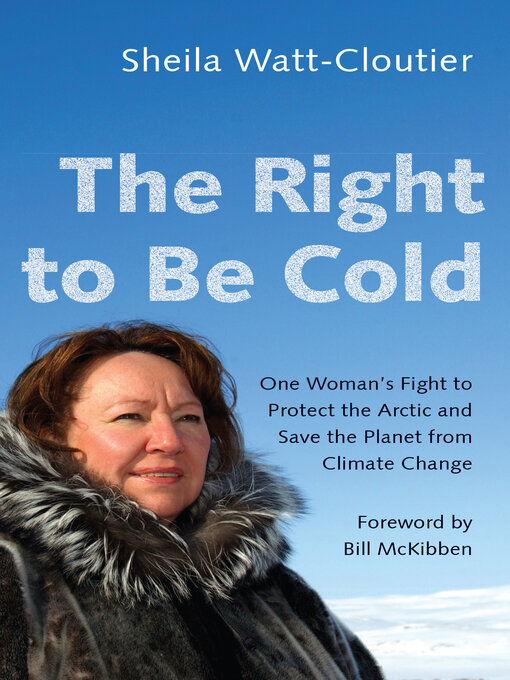A "courageous and revelatory memoir" (Naomi Klein) chronicling the life of the leading Indigenous climate change, cultural, and human rights advocate
For the first ten years of her life, Sheila Watt-Cloutier traveled only by dog team. Today there are more snow machines than dogs in her native Nunavik, a region that is part of the homeland of the Inuit in Canada. In Inuktitut, the language of Inuit, the elders say that the weather is Uggianaqtuq—behaving in strange and unexpected ways. The Right to Be Cold is Watt-Cloutier's memoir of growing up in the Arctic reaches of Quebec during these unsettling times. It is the story of an Inuk woman finding her place in the world, only to find her native land giving way to the inexorable warming of the planet. She decides to take a stand against its destruction.
The Right to Be Cold is the human story of life on the front lines of climate change, told by a woman who rose from humble beginnings to become one of the most influential Indigenous environmental, cultural, and human rights advocates in the world. Raised by a single mother and grandmother in the small community of Kuujjuaq, Quebec, Watt-Cloutier describes life in the traditional ice-based hunting culture of an Inuit community and reveals how Indigenous life, human rights, and the threat of climate change are inextricably linked. Colonialism intervened in this world and in her life in often violent ways, and she traces her path from Nunavik to Nova Scotia (where she was sent at the age of ten to live with a family that was not her own); to a residential school in Churchill, Manitoba; and back to her hometown to work as an interpreter and student counselor.
The Right to Be Cold is at once the intimate coming-of-age story of a remarkable woman, a deeply informed look at the life and culture of an Indigenous community reeling from a colonial history and now threatened by climate change, and a stirring account of an activist's powerful efforts to safeguard Inuit culture, the Arctic, and the planet.


